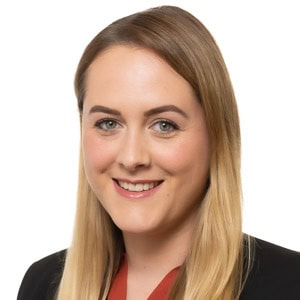
Cohabitees now receive the bereavement award following fatal accidents
Today marks a significant step forward in the pursuit of justice for bereaved people following the death of a loved one.
Changes to the Fatal Accidents Act 1976 come into force on 6th October 2020. These changes extend the scope of people who are entitled to receive the statuary bereavement award. In additional to wives, husbands, civil partners and children under the age of 18, the bereavement award can now also be claimed where the deceased was a cohabiting partner. The amount that can be claimed is a fixed sum of £15,210.
In order to be eligible for the award, the claiming cohabitee must have lived with the deceased in the same household immediately before their partner’s death for a period of at least two years. They must also have been living as the deceased’s wife, husband or civil partner during the whole of that two year period.
This change in the law came about as a result of the ruling in the case of Jacqueline Smith v Lancashire Teaching Hospitals NHS Foundation Trust and others [2017] EWCA Civ 1916. Miss Smith lived with her partner, Mr John Bulloch, from March 2000 to 12th October 2011 when Mr Bulloch died as a result of negligence admitted by the first two Defendants. Despite their long and close relationship, Miss Smith was not entitled to recover the bereavement award, as cohabitees were not then listed within the Fatal Accidents Act 1976. She went on to add the Secretary of State for Justice as the third defendant and claimed against him, arguing that the Fatal Accidents Act was discriminatory and in contravention of the European Convention of Human Rights (ECHR).
The Court of Appeal declared that the Fatal Accidents Act 1976 was indeed incompatible with Article 14, in conjunction with Article 8, of the ECHR. Article 14 contains a prohibition of discrimination and Article 8 provides a right to respect for one’s private and family life. It then fell to Parliament to amend the Act before cohabitees could make the claim.
The amendment to the Act is a positive development in ensuring that bereaved people are compensated appropriately. The changes go some way to acknowledging that there are a variety of family structures in modern society. However, it is my opinion that further legislative change is needed. Based on the ambit of Article 8 of the ECHR, it is arguable that other family members, such as siblings, aunties, uncles, nieces, nephews, children and parents of adult children should also qualify to receive the bereavement award.
It is also my view that the arbitrary sum of £15,210 is far too low. I believe that we should adopt the Scottish approach, which is to look at the relationship between the deceased and a wider variety of bereaved individuals on a case by case basis. In Scotland, there is no limit to the damages that can be awarded and there have been incidents where the bereavement award has exceeded £100,000.
No amount of money will ever make up for the loss of a loved one, but restricting those who are entitled to claim and the sum available to them adds insult to injury. The legislative changes that take effect from today are very much welcomed, but more reform is needed.










